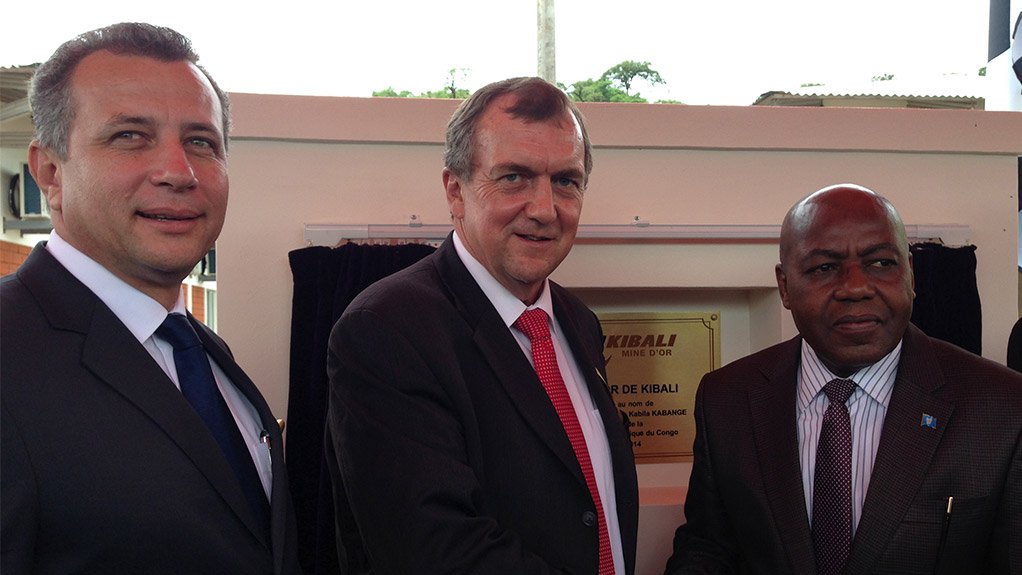CAPE TOWN (miningweekly.com) – Africa-focused Randgold Resources has increased production for the sixth consecutive year in 2016, while reducing total cash cost per ounce, and remains upbeat about its future prospects despite global uncertainties.
Speaking to Mining Weekly Online on the sidelines of the Investing in African Mining Indaba, on Monday, CEO Dr Mark Bristow noted that, with profits of $294.2-million up 38% on the previous year, the board had proposed a 52% increase in the dividend to $1 a share from $0.66 a share in the previous year.
The dividend will be paid in cash with no scrip alternative being made available. The company’s board agreed that the resolution for the dividend would be submitted to shareholders for approval at the company’s annual general meeting scheduled for Tuesday, May 2.
Randgold FD Graham Shuttleworth highlighted that, since Randgold paid its first dividend in respect of the 2006 financial year, the company had maintained a progressive dividend policy, with dividends having increased yearly and by 900% over this period, notwithstanding the drop in the gold price since 2011.
“This increase in dividends validates the business model and reflects the profitability and financial strength of the group,” he said.
The company’s flagship Loulo-Gounkoto gold mine, in Mali, exceeded its production guidance for the year by 37 000 oz, while also achieving its lowest-ever total cash cost per ounce. Its other mines also recorded solid performances that contributed to the record group production of 1.2-million ounces.
The group’s total cash cost of $639/oz was down 6% from the $679/oz recorded in the previous year.
Further, Bristow pointed out that Randgold had passed its net cash target of $500- million, with $516.3-million in the bank at the end of 2016 and no debt.
MAKING A MARK IN MALI
Meanwhile, Bristow highlighted that Randgold had been involved in Mali for the past 20 years and, in that time, had made an “enormous difference” for the better in the country. He commented that, at the national level, it had paid more than $2-billion to the government in taxes and dividends and contributed another $2.9-billion to the economy in the form of salaries, community investments and payments to local suppliers.
“Our Malian operations routinely account for between 6% and 10% of the country’s total gross domestic product,” Bristow stated, adding that the miner had taken great care to ensure that all its stakeholders – and not least the host government and the local communities – had shared equitably in the value that the company had created in the country.
He said that, in partnership with the government, Randgold had also developed Mali into “one of the world’s premier gold exploration and mining destinations”, by creating a solid foundation for general economic growth, which, together with the new mining companies in the industry, could still be improved upon.
“At Randgold, we are committed to further investment in Mali, not only with regard to exploration and its own mining businesses, but also in community projects aligned to its sustainability-focused social responsibility policy,” Bristow concluded.
Edited by: Chanel de Bruyn
Creamer Media Senior Deputy Editor Online
EMAIL THIS ARTICLE SAVE THIS ARTICLE
ARTICLE ENQUIRY
To subscribe email subscriptions@creamermedia.co.za or click here
To advertise email advertising@creamermedia.co.za or click here













